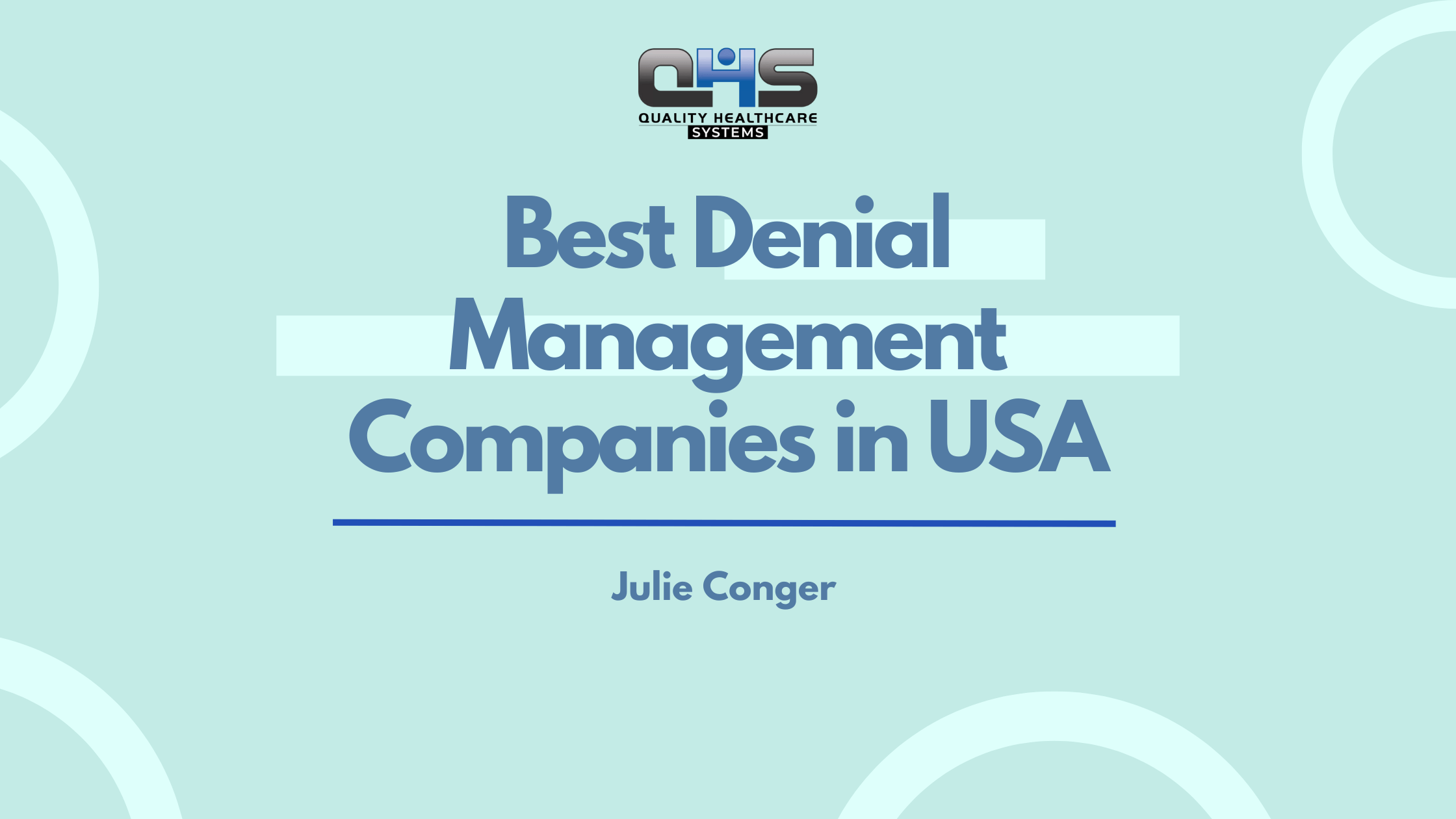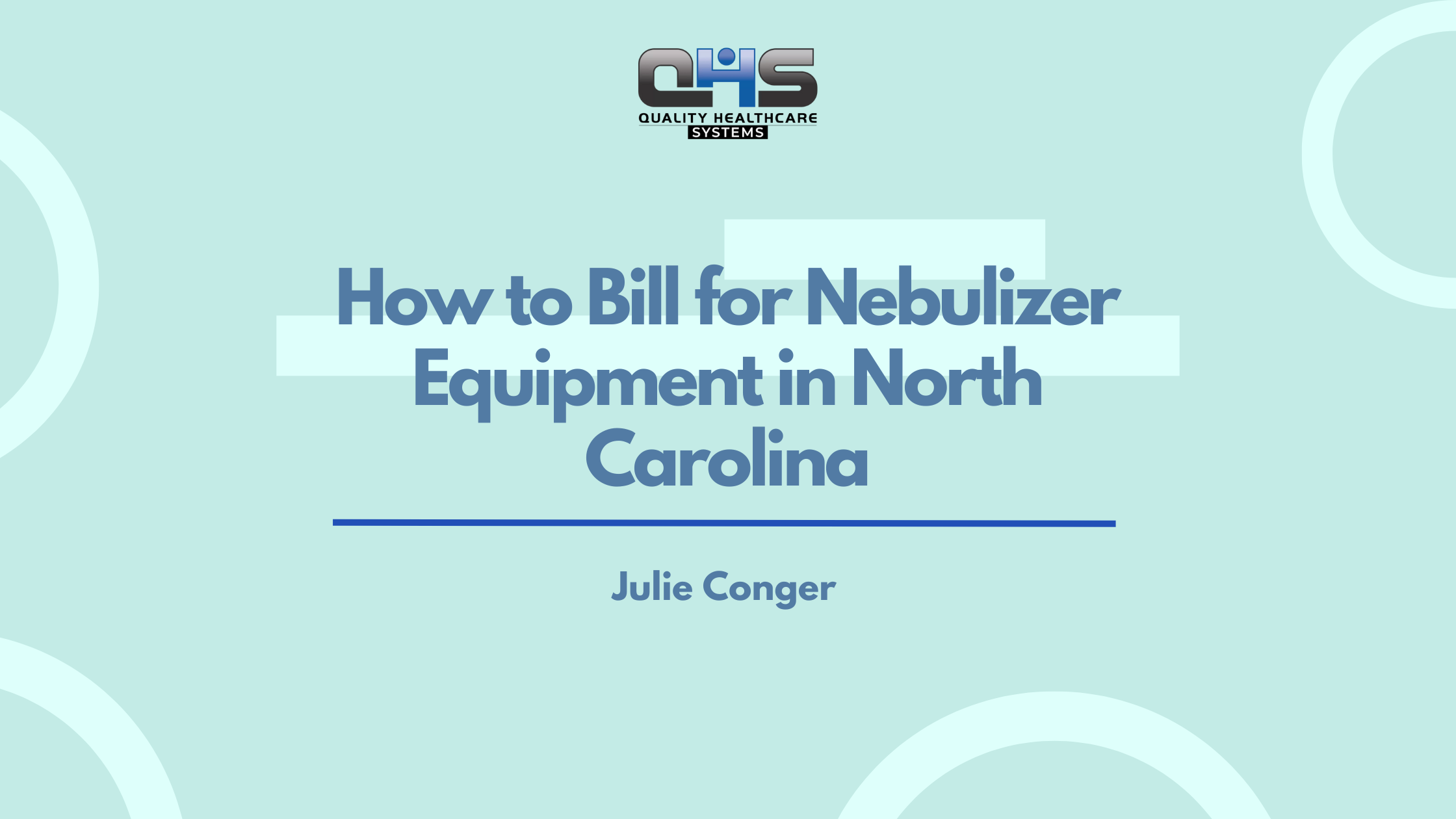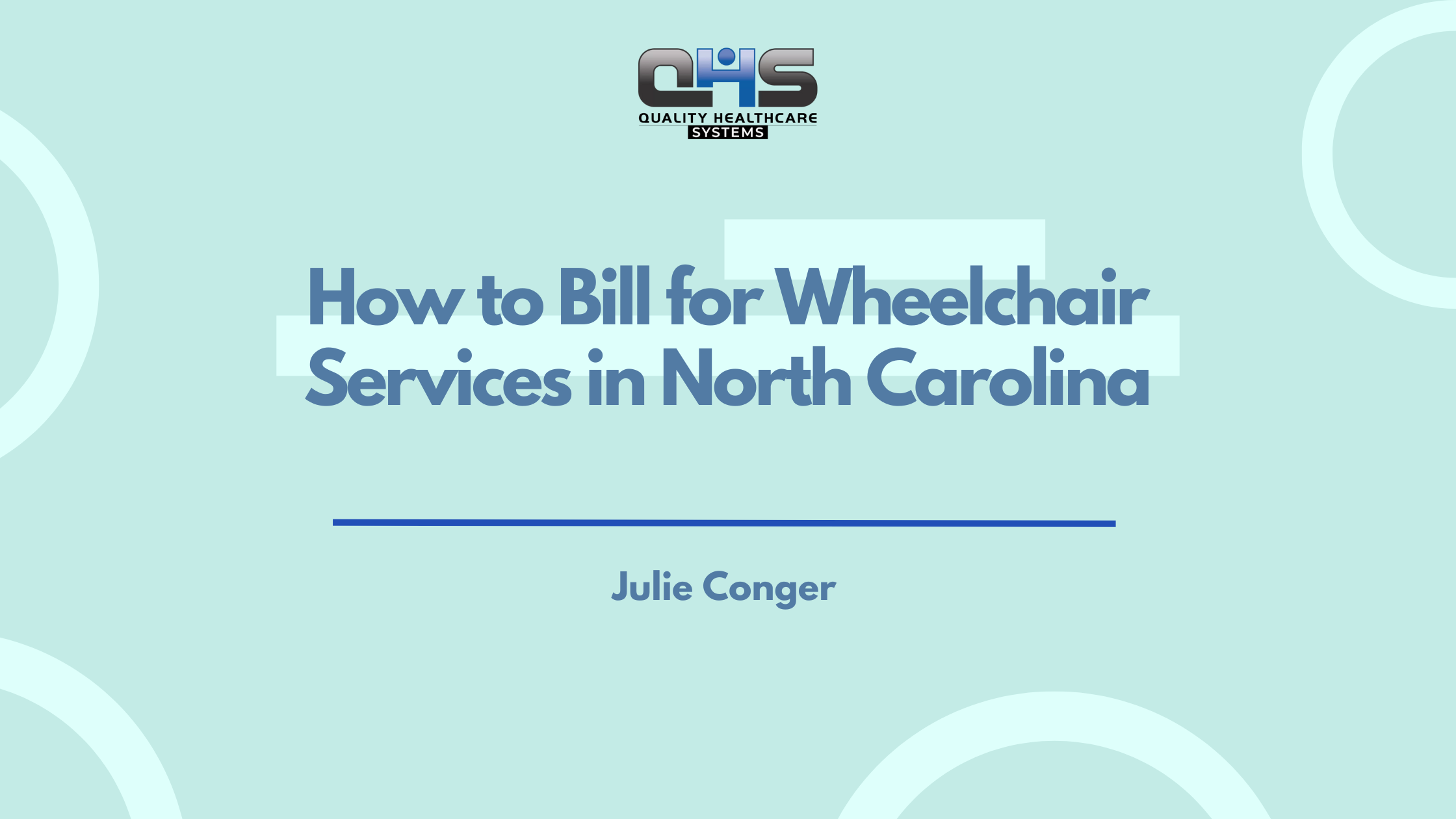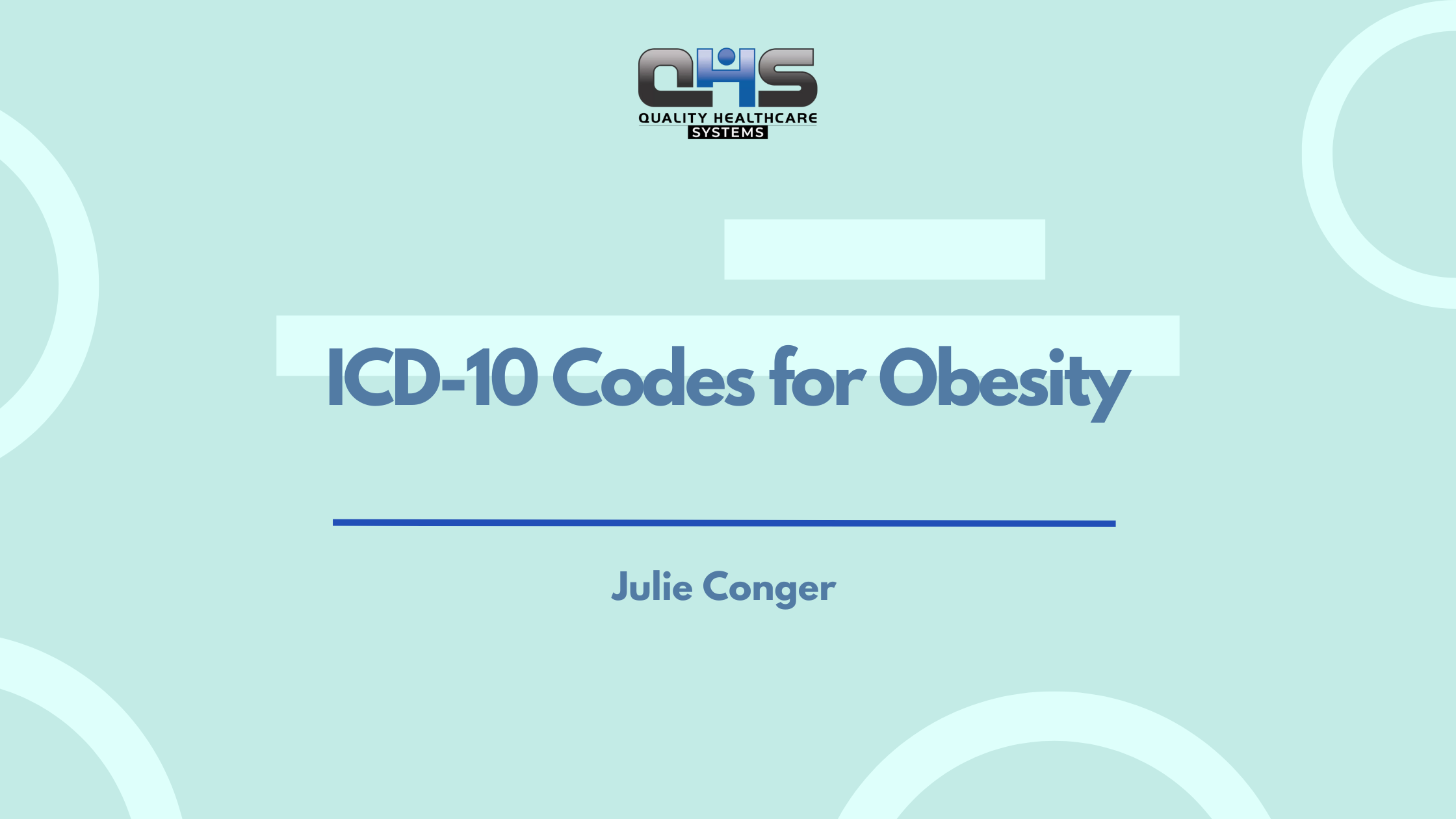Denial management remains a critical component of revenue cycle operations in the medical billing industry, and it’s an area healthcare providers cannot afford to overlook.
Whether you manage a small practice or a larger healthcare organization, partnering with the best denial management companies can significantly improve claim resolution efficiency and reduce financial strain.
Unresolved claims denials represent a significant financial burden for healthcare organizations, accounting for an average annual loss of $5 million per hospital—equating to as much as 5 percent of net patient revenue (Journal of Ahima, 2022).
We have compiled this list of the best denial management companies based on years of industry experience, customer feedback, and proven success in improving claim approval rates. It is based on real client experiences and in-depth market research, designed to help you make an informed decision for your practice.
Let’s take a closer look at the best denial management companies in 2025 and see how they compare in terms of service, pricing, and overall effectiveness.
What are Denial Management Companies?
Denial management companies are specialized service providers that help healthcare organizations reduce claim denials, recover lost revenue, and speed up payments. They manage the entire denial lifecycle by identifying billing errors, handling appeals, improving coding accuracy, and strengthening payer communication to maximize approval rates and cash flow.
Best Denial Management Companies in the US
| Company Name | Specialization | Client Satisfaction | Unique Feature |
|---|---|---|---|
| Quality Healthcare System (QHS) | Full-service medical billing | ⭐⭐⭐⭐⭐ | Advanced claim submission & verification solutions |
| Optum360 | Revenue cycle management & denial prevention | ⭐⭐⭐⭐☆ | Data-driven insights & AI-powered solutions |
| Cerner | Revenue cycle management | ⭐⭐⭐⭐☆ | Industry-leading analytics tools |
| TruBridge | Billing & coding services | ⭐⭐⭐⭐☆ | Specializes in improving claims efficiency |
| GeBBS Healthcare Solutions | Outsourced billing services | ⭐⭐⭐☆ | Scalable solutions for large practices |
| Kareo | Billing & practice management | ⭐⭐⭐⭐☆ | Integration with practice management software |
| Navicure | Revenue cycle management | ⭐⭐⭐⭐☆ | Real-time payment insights for better financial management |
| eCatalyst | End-to-end billing services | ⭐⭐⭐⭐☆ | Custom billing solutions for specialists |
| Vizient | Data analytics & revenue cycle | ⭐⭐⭐⭐☆ | Focus on optimizing payment cycles |
| Nextech | Medical billing and software | ⭐⭐⭐⭐☆ | Billing software with specialty-specific templates |
1 . Quality Healthcare System (QHS)
- Years in Service: Over 15 years
- U.S. State: North Carolina
- Website: qhshealth.com
- Key Services: Denial management, DME billing, medical billing, ADR handling, claims follow-up, revenue cycle management.
- Pricing: Plans start from 3% to 7% of collections, based on service level and features included.
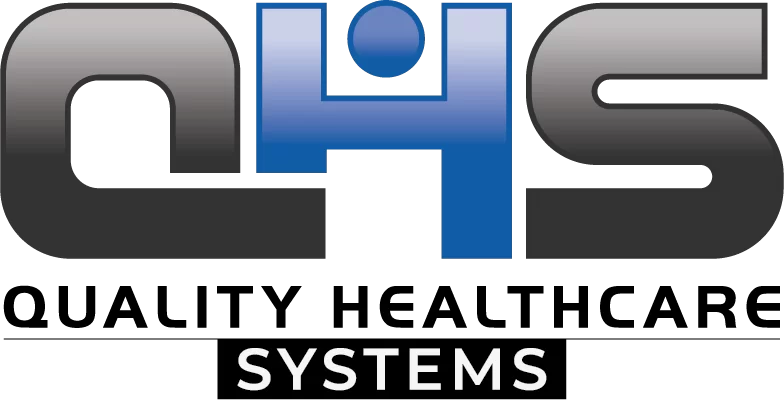
Quality Healthcare Systems (QHS) is the leading denial management company in the USA. With over 15 years of experience, QHS has become the trusted partner for healthcare providers seeking to maximize revenue recovery and optimize claims processing.
Unlike other providers, QHS works closely with clients to address specific denial management challenges, ensuring efficient claim resolution and more streamlined processes.
QHS stands at the best in denial management industry, providing proven, results-driven strategies. Their focus on customized solutions enhances the revenue cycle by resolving denials more effectively and reducing claim processing times.
| Aspect | Pros/Cons |
|---|---|
| Proven Expertise | ✅ 15+ years in effective denial management solutions. |
| Tailored Solutions | ✅ Customized strategies to fit each client’s needs. |
| Advanced Technology | ✅ Fast denial identification and resolution with analytics. |
| Comprehensive Service | ✅ Handles full denial management from start to finish. |
| Faster Resolution | ✅ Quick claim resolutions, improving cash flow. |
| Proactive Prevention | ✅ Identifies trends to reduce future denials. |
| Implementation Time | ❌ Initial setup may take time for full integration. |
| Requires Collaboration | ❌ Customization needs active client involvement upfront. |
Key Features Tailored to Denial Management Customers:
-
Comprehensive Denial Resolution: Quality Healthcare Systems (QHS) uses advanced analytics to quickly identify and resolve denials at the root, addressing coding, documentation, and payer issues.
-
Appeals Management: QHS efficiently manages appeals, ensuring timely documentation and fast dispute resolution to minimize losses.
-
Payer Analysis & Negotiation: Quality Healthcare Systems analyzes payer trends and negotiates directly to reduce future denials.
-
Coding & Documentation Support: Quality Healthcare Systems (QHS) ensures accurate coding and thorough documentation to prevent claim denials.
-
Proactive Denial Prevention: Quality Healthcare Systems identifies denial patterns and implements strategies to prevent rejections, improving first-pass approvals.
-
Faster Claim Resolution: QHS resolves denials quickly, speeding up the reimbursement cycle and enhancing cash flow.
2. Optum360
-
Years in Service: Over 20 years
-
U.S. State: Minnesota
-
Key Services: Denial identification, automated appeals, payer analysis, and clinical documentation improvement.
Optum360 specializes in denial management, offering appeals automation, and payer analysis. Their results may vary depending on provider-specific needs, with their data-driven solutions being applicable across various healthcare settings.
Optum360 ranks in the top 10 for denial management due to their technology-driven approach, although their solutions’ effectiveness is provider-dependent.
| Pros | Cons | QHS Comparison |
|---|---|---|
| ✅ Offers a technology-driven approach to streamline the denial management process. | ❌ Technology may not suit all provider needs. | QHS offers a more personalized and flexible denial management service, ensuring better client engagement and faster resolutions than Optum360. |
| ✅ Provides comprehensive automated solutions to reduce manual work and improve efficiency. | ❌ Complex integration could delay implementation. | |
| ❌ Automation may miss nuanced denial issues. | ||
| ❌ Effectiveness varies based on integration. |
3. Cerner Corporation
-
Years in Service: Over 40 years
-
U.S. State: Missouri
-
Key Services: Denial tracking, clinical decision support, and automated denial prevention.
Cerner focuses on integrating denial prevention tools with clinical decision support. However, the success of their solutions is contingent on the healthcare provider’s implementation. Cerner ranks highly among denial management companies in the U.S. due to their long industry tenure, though outcomes are dependent on implementation.
| Pros | Cons | QHS Comparison |
|---|---|---|
| ✅ Integrates clinical decision support with denial prevention for proactive solutions. | ❌ Complex solutions requiring extensive integration. | QHS focuses on tailored solutions and flexible integration, offering faster implementation compared to Cerner’s complex systems. |
| ✅ Offers data-driven insights that help identify trends in denials and prevent future issues. | ❌ High dependency on IT systems and automation. | |
| ❌ Solutions can be difficult to implement in small practices. | ||
| ❌ Some clients report inconsistent results. |
4. R1 RCM
-
Years in Service: Over 10 years
-
U.S. State: Illinois
-
Key Services: Denial management, claims follow-up, coding and documentation services.
R1 RCM offers comprehensive denial management solutions, combining technology with human expertise to manage claims and denials. Their integrated approach focuses on reducing denial rates, though the effectiveness depends on the healthcare provider’s operations and integration of their solutions.
It ranks in the top 10 for denial management in the U.S. due to their broad service offering, though performance may vary based on integration quality.
| Pros | Cons | QHS Comparison |
|---|---|---|
| ✅ Provides a mix of human expertise and advanced technology for balanced denial management. | ❌ Over-reliance on automation can overlook specific denial issues. | QHS’s adaptive, human-driven approach delivers faster and more efficient results than R1 RCM’s heavy reliance on automation. |
| ✅ Focuses on both claims follow-up and denial resolution to improve revenue cycle efficiency. | ❌ Can be less flexible with highly customized requirements. | |
| ❌ High operational costs for smaller providers. | ||
| ❌ Client satisfaction can be inconsistent across healthcare settings. |
5. Conifer Health Solutions
-
Years in Service: Over 30 years
-
U.S. State: Texas
-
Key Services: Denial management, coding and billing services, payer relations, and root cause analysis.
Conifer Health Solutions focuses on improving financial outcomes with a strong emphasis on denial management.
The impact of their services varies depending on how effectively providers integrate their solutions into existing operations.
Conifer Health ranks among the top U.S. denial management companies, but their services’ effectiveness can depend on client-specific requirements.
| Pros | Cons | QHS Comparison |
|---|---|---|
| ✅ Focuses on detailed root cause analysis to understand the underlying reasons for denials. | ❌ Broad service offerings may lack specific focus on denial management. | QHS provides more specialized and focused support, unlike Conifer’s broader service offerings which may lack deep focus on denials. |
| ✅ Offers payer relations to address and prevent future denials. | ❌ Standardized solutions may not cater to every provider’s unique needs. | |
| ❌ Can be difficult to scale for smaller organizations. | ||
| ❌ Some clients report slower turnaround times. |
6. nThrive
-
Years in Service: 10+ years
-
U.S. State: Georgia
-
Key Services: Denial resolution, payer analysis, appeals management, and coding services.
nThrive provides customized denial management services, combining technology with experienced professionals to minimize denials and maximize claim approvals.
nThrive ranks in the top 10 for denial management work in the U.S. due to their tailored approach, though provider engagement influences outcomes.
| Pros | Cons | QHS Comparison |
|---|---|---|
| ✅ Provides a mix of human expertise and advanced technology for balanced denial management. | ❌ Standardized solutions may not fit all provider needs. | QHS provides a better blend of human expertise and technology for customized denial management, unlike nThrive’s standardized approach. |
| ✅ Combines skilled professionals with technology to offer customized support. | ❌ Limited flexibility in adapting to rapidly changing healthcare environments. | |
| ❌ Can be costly for smaller healthcare providers. | ||
| ❌ Client engagement is key to success, which may lead to inconsistent results. |
7. TriZetto (by Cognizant)
-
Years in Service: Over 20 years
-
U.S. State: New Jersey
-
Key Services: Denial prevention, claims management, automated appeals, and analytics.
TriZetto specializes in denial management, offering advanced IT solutions to streamline claims management. With over 20 years in healthcare IT, they integrate payer data with healthcare workflows to reduce denials.
TriZetto ranks within the top 10 for denial management in the U.S. due to their IT expertise, though results depend on client-specific implementation.
| Pros | Cons | QHS Comparison |
|---|---|---|
| ✅ Offers advanced IT solutions to automate claims management and improve operational efficiency. | ❌ Primarily technology-driven, potentially lacking human expertise. | QHS’s comprehensive solutions are more adaptable to diverse healthcare environments, unlike TriZetto’s technology-heavy, rigid solutions. |
| ✅ Focuses on reducing errors and streamlining workflows for smoother claim resolution. | ❌ Complex tools may be difficult for smaller providers to adopt. | |
| ❌ Integration challenges with existing systems. | ||
| ❌ May not fully address specific denial challenges in diverse healthcare settings. |
|
8. Waystar
-
Years in Service: Over 10 years
-
U.S. State: Kentucky
-
Key Services: Automated denial management, claim tracking, coding and compliance services.
Waystar offers an intuitive platform for automated denial management, focusing on real-time data and transparency. Their services aim to increase claim approval rates and reduce denials.
Waystar ranks among the top ranking in denial management medical billing companies in the U.S., with a focus on automation, but provider adoption impacts results.
AdvantEdge Healthcare Solutions
-
Years in Service: Over 15 years
-
U.S. State: New Jersey
-
Key Services: Denial identification, claims follow-up, coding audits, and payer relations.
AdvantEdge specializes in personalized denial management services, offering tailored solutions to streamline the denial process and improve cash flow.
AdvantEdge ranks within the top 10 denial management companies in the U.S. due to their personalized approach, but results depend on client engagement.
| Pros | Cons | QHS Comparison |
|---|---|---|
| ✅ Provides a real-time, transparent platform that allows for quick denial tracking and resolution. | ❌ Over-reliance on automation may miss complex denial issues. | QHS ensures both human support and technology, providing faster and more personalized denial resolution compared to Waystar’s automation-based platform. |
| ✅ Focuses on automating denial management to improve efficiency and reduce manual effort. | ❌ Lacks personalized support for unique healthcare needs. | |
| ❌ The platform may not be fully adaptable to all providers. | ||
| ❌ May not achieve the desired results for smaller practices. |
9. MedData
-
Years in Service: Over 30 years
-
U.S. State: Texas
-
Key Services: Denial management, claims follow-up, payer analytics, and coding services.
MedData combines innovative technology with personalized service to manage denials and improve reimbursement outcomes. With over 30 years in the industry, they focus on efficient claim resolution.
While their solutions help reduce denials, the success depends on how well healthcare providers implement their services and tools.
MedData ranks in the top list of the U.S. denial management companies, but results vary based on healthcare provider needs and engagement.
| Pros | Cons | QHS Comparison |
|---|---|---|
| ✅ Combines skilled professionals with technology to offer customized support. | ❌ Technology solutions may not always meet specific provider needs. | QHS delivers a balanced combination of technology and personalized support, making it more adaptable to specific provider needs than MedData. |
| ✅ Offers payer analytics to identify denial patterns and prevent recurrence. | ❌ Limited focus on automation, which may result in slower turnaround times. | |
| ❌ May not be fully adaptable to smaller providers. | ||
| ❌ Some clients report inconsistent results based on their specific needs. |
Why Quality Healthcare Systems (QHS) Stands Out in Denial Management
Quality Healthcare Systems (QHS) specializes in providing tailored denial management solutions that are specifically designed to meet the unique needs of healthcare providers.
Their services cover every aspect of denial management, from identifying and addressing claim denials to managing appeals and payer relations. QHS takes a proactive approach by analyzing denial trends and resolving the root causes to reduce future rejections. With fast implementation and measurable improvements within 30 to 90 days, QHS ensures a smooth and efficient process.
The company offers expert, hands-on support throughout the process, and consistently delivers results, including reducing denials by 30% or more.
Reasonable and Transparent Pricing
QHS offers competitive and transparent pricing based on the level of service that best suits your practice’s needs. With pricing models tailored to different service tiers, healthcare providers can select the level of support that fits their financial goals while ensuring high-quality denial management.
-
Lite Plan – 3%: Includes claim reviews for billing errors, claim transmission, front-end rejections, working on A/R and denials, and post-payment processing.
-
Premium Plan – 5%: Adds custom billing reports and 1 login for software, in addition to all features of the Lite plan.
-
Premium+ Plan – 7%: Offers additional features like patient invoicing, pre/post-pay audit assistance, and 2 logins for software.
See How QHS Transforms Revenue for Healthcare Providers
Read real success stories from our clients and discover how QHS helped them boost collections and streamline operations. [Explore Success Stories →]
Other Services Quality Healthcare Systems Provides:
A/R Management | Revenue Cycle Management | Provider Credentialing
Frequently Asked Questions
How do I choose the best denial management company?
To choose the best denial management company, focus on key factors such as the company’s experience, customer satisfaction, technological capabilities, and the quality of their personalized service. Look for a company with a proven history of reducing denials and increasing claim approval rates.
What makes QHS different from other denial management companies?
QHS stands out for its tailored approach, deep industry-specific expertise, and exceptional customer service. We specialize in improving denial rates through customized solutions that address your practice’s unique needs and challenges.
How much does denial management typically cost?
Denial management costs depend on the size of your practice, the complexity of your claims, and the services provided. Most denial management companies offer flexible pricing models, allowing you to choose a solution that suits your specific needs.
What is the success rate of denial management companies?
The success rate of denial management companies varies based on their experience, technology, and approach. Many top providers report reducing denial rates by 20-40% or more, contributing to higher claim approval rates and improved financial performance.
Final Conclusion
In conclusion, each of the companies mentioned here has proven its ability to effectively manage denials and help healthcare organizations optimize their revenue cycle. However, if you’re looking for a trusted, award-winning partner with personalized service and proven results, Quality Healthcare Systems is ready to help.
Related Posts:
- Medical Billing for Artificial Limbs
- Medical Billing for Orthopedic Support
- Medical Billing for Hemipelvectomy Prosthetic
- Medical Billing for Spinal Orthoses
- Prosthetic Billing for Lower Limbs
